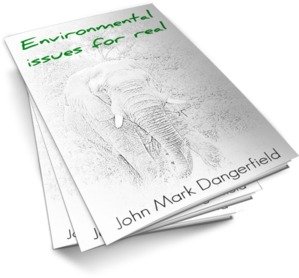Home | About CCW | Contact Us | Climate change Meaning | Causes | Solutions | Emissions | Carbon trading
Economics of global warming
The economics of global warming are slippery.
If we choose to be proactive and do something about climate change - reduce emissions, shift to renewable energy, and climate proof our water and farming systems - it will cost us in cash, economic growth and future stability.
If we choose to do nothing it will cost us in cash, economic growth and future stability.
The problem is that we don't really know how much either option will cost and especially how much insurance we can buy by spending now.

alternative energy | solar panels on a home in Austria
We do know that there are at least three sets of expenses associated with global warming; there will be a cost of:
1. mitigation
the fancy term for doing something about what we believe causes global warming - the main mitigation task we have chosen is reducing greenhouse gas emissions but we will also shift to alternative fuels
2. adaptation
these are actions we need to take to prepare for the effects of global warming given that even with mitigation effort there will be some effects we will not be able to avoid
3. recovery
these are the inevitable costs of rebuilding and rehabilitation from climate change effects when mitigation and adaptation have not been enough
A couple of years ago at the time of the Copenhagen UNFCCC conference of the parties, the UN estimated the cost of climate change at $600 billion a year - a little less than the GDP of Indonesia, a country of 237 million people.
In 2011 the UN says the cost will be $1.9 trillion a year for 40 years.
That is about the current GDP of Italy, the 8th largest economy in the world and 3% of the global GDP.
It's a lot of money.
The economics of global warming is a wicked problem, not just because the cost is potentially huge, but because it's all cost. There is no earner.
We have to pay just to mitigate against the problem and for the only benefit of lower future cost.
And most of us are under-insured at home let alone for an environment we have always thought was free to use. Another way to look at the economics of global warming is to determine abatement cost - the cost to remove one tCO2e.
The US EPA estimate the abatement cost at $21 tCO2e and the Australian government has proposed $23 tCO2e.
But $150 to $500 per tCO2e are considered a more realistic range because...
- science is uncertain about how fast climate change will progress
- economists are uncertain about the severity of the damage
- economists have little information about damages at much higher global warming temperatures
- there is no consensus on how we value the costs and benefits of climate change
These economics are slippery because we don't know how much we have to pay.
We do know that we are paying for our profligacy.
More reading from CCW
Environmental Issues for Real by Dr J. Mark Dangerfield looks at some of the obvious, and some of the not so obvious, challenges for a growing human population living as we do in a finite world.
Only this time it's not about the impending disasters or the guilt or the blame.
This time, it’s 10 brief essays that are about the bigger picture. In less than an hour you could glimpse something different, a view that we can only see when we take a fresh look.
Download your copy at Smashwords
Back to top of Economics of global warming | Return from Economics of global warming to Emissions | Back to Climate-change-wisdom home page
Recent Articles
-
Reducing emissions while looking for solutions...
Nov 01, 15 04:46 PM
I've seen a lot of post's online for ideas on reducing emissions. The one suggestion I have not seen, is the most obvious. There should be a government -
Climate change evidence
Mar 24, 15 06:22 AM
Real climate change evidence has to demonstrate a change in climate. An extra sunny day or a severe storm or a flood is not enough. -
The climate change effect
Feb 19, 15 03:08 AM
What will be the climate change effect? There isn't one, there are many. Perhaps too many for us to understand.


New! Comments
Have your say about what you just read! Leave me a comment in the box below.